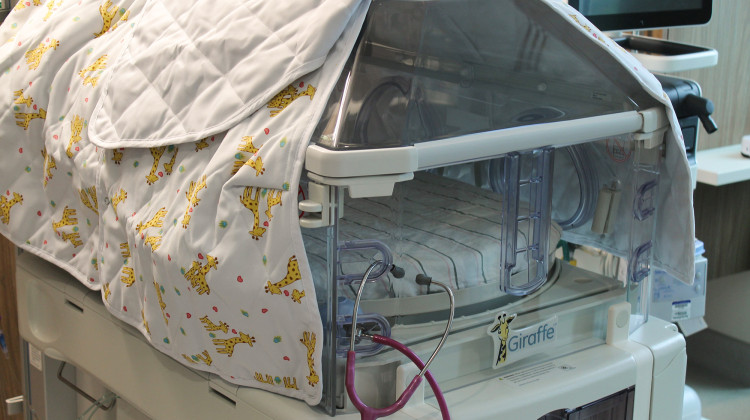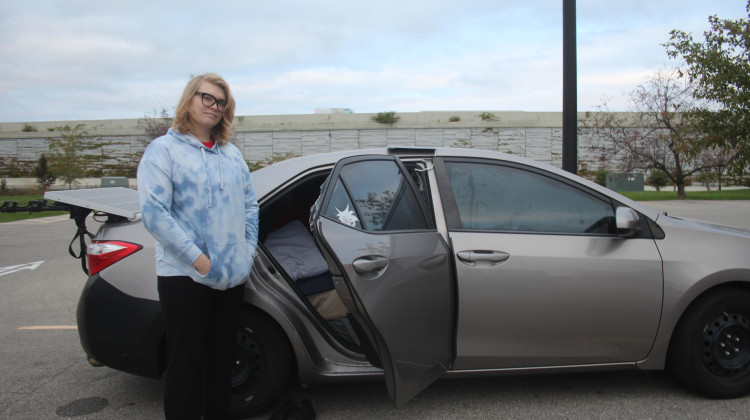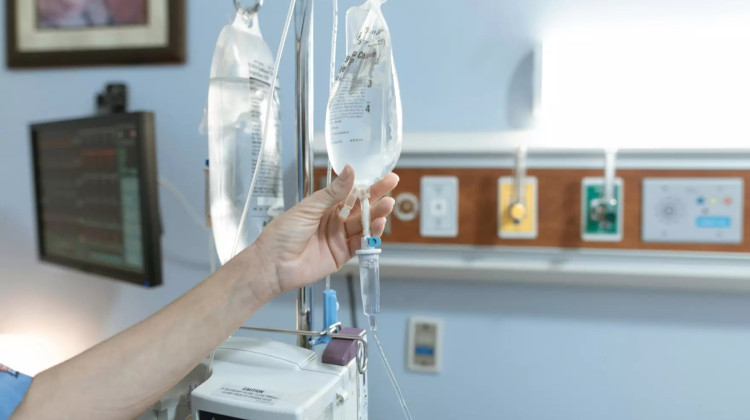INDIANAPOLIS - Latino teens demonstrate higher levels of stress, depression and suicidal thoughts than other school-age demographics in Indiana. One summer camp aims to address this problem.
In June, on the campus of Indiana University-Purdue University in Indianapolis, 24 campers and 9 mentors spent a week working and playing to building self-confidence and self-worth.
One of the mentors, 18-year old Jennifer Santana, started as a camper here three summers ago.
The name of the camp is “Your Life. Your Story” and it aims to promote mental health, because - while its Latino campers may have never shown symptoms of things like depression or anxiety - they are in one of the highest risk groups in the state.
Santana says this camp can help them get ahead of that.
"In my opinion Latinos do go through a lot of struggles, maybe more than other kids, sometimes it’s language, sometimes it academic and sometimes it’s socially," commented Santana, "kids will let them (peers) get into their heads, they’ll start thinking 'maybe they’re right, maybe I’m not anyone, maybe I won’t go to college.'"
But Santana is planning on going to college to be a pharmacy technician. She remembers a resilience training exercise at the camp as a life-changer.
"Every day they kept changing the questions and there came a moment where the questions started relating to me." said Santana. "And so I started thinking, 'Maybe I do need this, maybe this is going to be helpful to me and my future.'"
The research-based program was developed after IUPUI Associate Professor of Social and Behavioral Sciences Silvia Bigatti was struck by numbers from the CDC’s Youth Risk Assessment Survey. That survey reported Latino teens in Indiana have a 24 percent higher rate of depression and are 65 percent more likely to attempt suicide. She says this trend stems from something called as acculturative stress.
"In this case, it’s Latino teens who may have even been born here but they have the Latino culture and then the American culture and they need to fit in both and it’s difficult" said Bigatti. "I kind of see it like a fence and when they’re inside of the home they get pushed that way, and then this way, and it’s stressful."
When Bigatti started she says she wanted to address these issues before they became problems.
"With teens, and these teens especially, we thought we could take a preventative approach." said Bigatti. "Especially, issues like mental health are going to affect their academic performance and their hopes for the future, and so this is a critical time to make sure that we get them."
Working with community partners the camp developed activities like art and movement, time with college age mentor volunteers and splitting up the boys and girls for sessions.There are also daily resilience sessions that are led by mental health providers who help the teens address issues like discrimination and self-confidence and give them tools to deal with adversity.
Bigatti says the first year the immediate results surpassed her expectations- and indicated significantly higher measures of resilience and lower levels of depression but she was cautious.
"When we saw the immediate improvements I’m like, ‘Well… they just finished this exciting camp let’s be careful with this.’ But then at six months we had the same numbers we saw the same numbers so it wasn’t just a post-camp high… it was really something that was there." commented Bigatti.
Back at camp, mentor Jennifer Santana says that was her experience and - post camp … she had stronger self-esteem and expression.
"I started thinking more of myself as any other person in society so I started thinking 'I am different and there is purpose in what we’re doing here and anything I do it effects who I am, and as long as I know who I am, I think I’m good.'" said Santana.
“Your Life. Your Story” is now seeking additional funding to bring some of the elements of the program to teens year round.
 DONATE
DONATE







 Support WFYI. We can't do it without you.
Support WFYI. We can't do it without you.